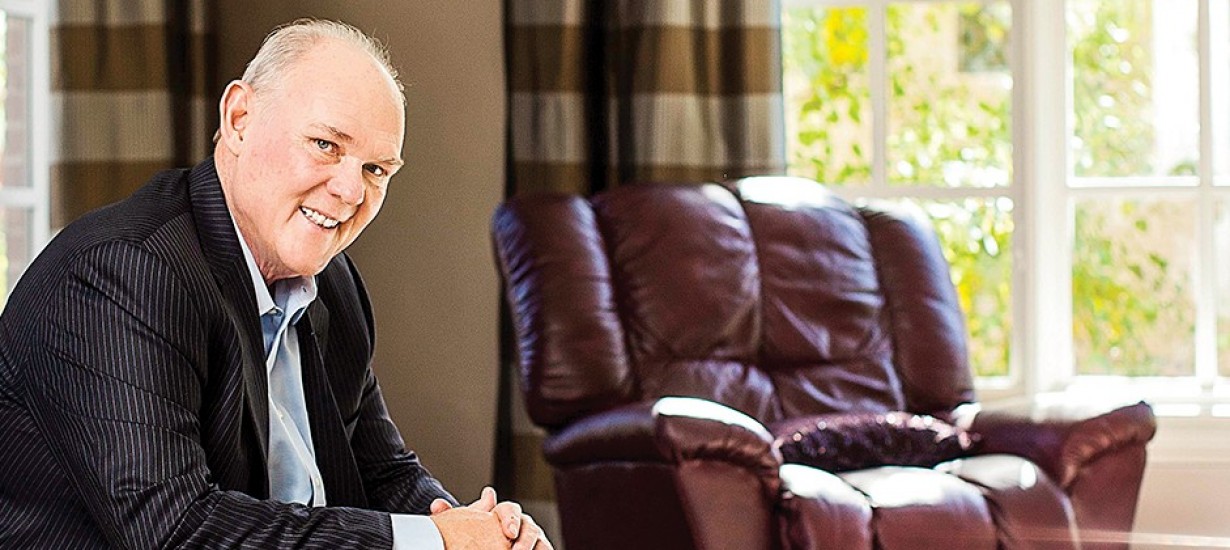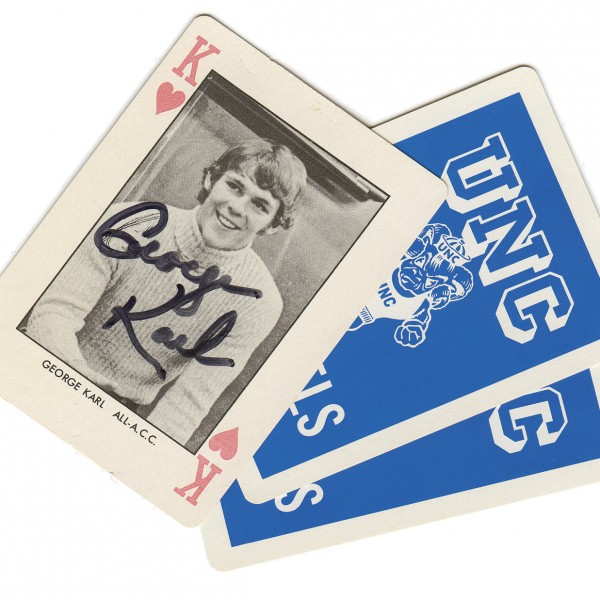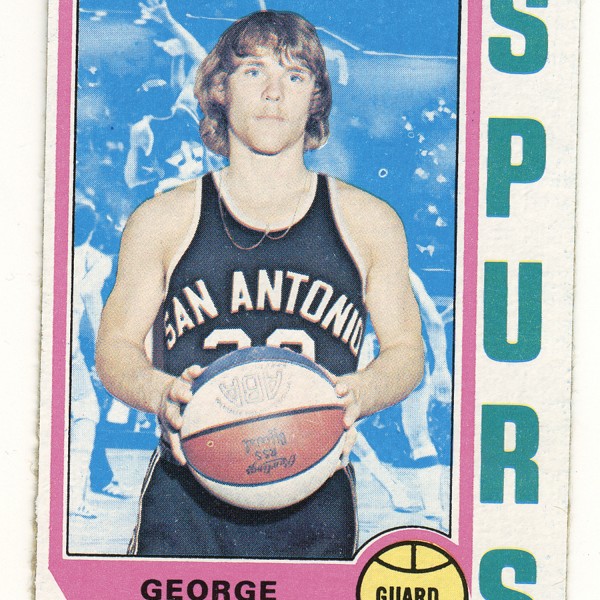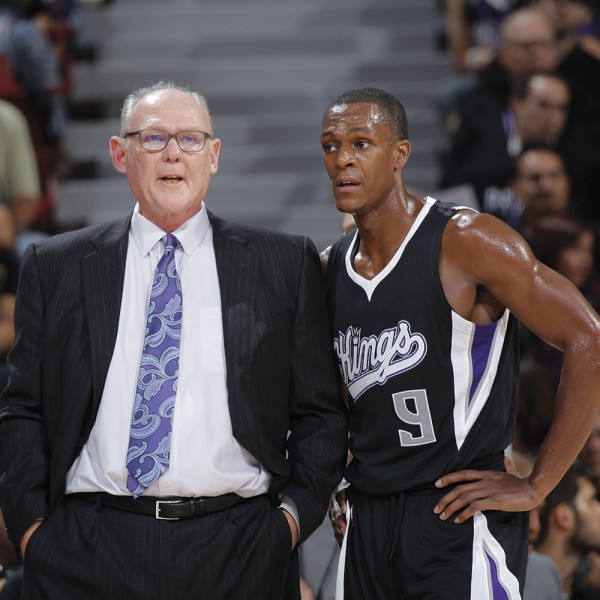Alumni Today: George Karl ’73 — Always Rebounding

Through success and sickness, the NBA veteran draws on Tar Heel inspiration.
For a time, George Karl ’73 was known around the NBA as “Furious George” for his intensity, his prickly relationships with players and reporters, and his fast-paced offensive strategy.
The likely Hall of Fame coach — in his second season trying to turn around the Sacramento Kings — seems to have mellowed with age and bouts of illness, but there’s no less desire to lead and to win, inspired by his time as a player at Carolina.
The 64-year-old Karl, raised near Pittsburgh, often has said that heading south to Chapel Hill was his best decision, especially for the mentoring he received from Dean Smith. Before notching more than 1,000 NBA coaching wins, fathering three children and twice battling cancer, Karl learned strategies for life — not just basketball — from Smith.
 Karl still refers to Smith, who died in February 2015, in the present tense while emphasizing the fraternity of Carolina basketball the coach built, how the players remain committed to one another and to the University. Smith was just as proud of players who went on to careers in medicine, the law, politics or other professions as those who became basketball superstars, Karl said.
Karl still refers to Smith, who died in February 2015, in the present tense while emphasizing the fraternity of Carolina basketball the coach built, how the players remain committed to one another and to the University. Smith was just as proud of players who went on to careers in medicine, the law, politics or other professions as those who became basketball superstars, Karl said.
“I’ll put Carolina as a resume — of people — against any basketball program in America,” he said. “I’m not talking about playing in the NBA or coaching in the NBA or winning championships. I’m talking about citizens of our country who were guided into leadership roles because of playing four years of basketball at Carolina.”
Karl was in final contract negotiations with the Kings when he took a timeout to fly to Chapel Hill for Smith’s funeral. Sometimes pausing with emotion, he recalled his last meeting with Smith a few years earlier at Carolina for a celebration of what Karl considers a hallmark of his own career, winning the NIT in 1971.
“We had a group dinner Friday night before the Saturday game. He spent two hours with us. I was blessed because he hung out with me more than others that night. He was losing his memory and felt unsure and wanted me next to him. Even though it was sad to see him in that state, it was very memorable for me because he chose me to be his buddy that night.”
Karl said he had leaned on the coach for support during his own hard times.
“Even after having tremendous success, he was the guy I relied upon when I wasn’t having success,” Karl said. “Coach Smith was a father figure, and there’s no question that a lot of his players consulted with him on very serious situations in our lifetimes, from getting married or divorced, he was the guy many players called. Fortunately, he was there for me on many, many days.”
 Navigating career and cancer
Navigating career and cancer
Karl’s experience with the nomadic vagaries of pro basketball success began as a player for the American Basketball Association’s San Antonio Spurs. He moved with that team to the NBA and later was an assistant coach there. He coached in Great Falls, Mont., in the now-defunct Continental Basketball Association, then for the Cleveland Cavaliers and Golden State Warriors. He returned to the CBA in Albany, N.Y., and coached in Spain before joining the Seattle SuperSonics, leading the team for seven seasons, including taking them to the NBA Finals in 1996 — only to lose to Michael Jordan ’86 and his Chicago Bulls. He coached the Milwaukee Bucks and Denver Nuggets (where in 2013 he was both NBA Coach of the Year and fired) before arriving in Sacramento.
Through all the moves, hirings and firings, Karl has more than 1,160 wins and counting, recently passing Phil Jackson for fifth place on the league’s list of most coaching victories and pursuing fourth-place Pat Riley. The stats add up to a remarkable 21 winning seasons and 22 playoff appearances.
Karl, with homes in Sacramento and Denver, lives with Kim Van Deraa, his longtime life partner. Together they have an 11-year-old daughter, Kaci Grace.
He has two grown children from a former marriage: Coby, a former Boise State star and cancer survivor who played in Europe, the NBA and its Development League and is a now an assistant coach with the D-League’s Westchester, N.Y., team (a New York Knicks affiliate); and Kelci, deputy chief financial officer for a government agency in Washington state, whose husband is a high school girls’ basketball coach. Karl is a doting grandfather to their three children.
Karl and Van Deraa wanted more children, but his prostate cancer in 2005 dashed those hopes. After battling the illness, Karl was diagnosed again with cancer in 2010, this time in his neck and throat. The scary, often gruesome bouts interrupted coaching and prompted some soul-searching. He shed his notable girth, works out regularly and eats a strict, health-focused diet. For leisure, Karl and Van Deraa travel to Europe regularly, spend time with close friends and hit the golf course now and then.
“After the second cancer, the best phrase for me is balancing my life a little better,” he said. “Cancer consumes you, dominates your personality and life. I’ve learned to delegate and walk away from the game when I feel I’ve done my job. I don’t over-coach as much as I did when I was younger by delegating responsibilities to my assistants twice as much as I used to. You can coach and win in this league with different philosophies and doing it a lot of different ways.”

Karl, here with Sacramento point guard Rajon Rondo during a game in October, began his pro playing days with the San Antonio Spurs in the American Basketball Association and moved with the team to the NBA. He became an assistant coach with the Spurs before leading several teams and being named NBA Coach of the Year in 2013 with the Denver Nuggets. (Photo by Rocky Widner)
Trying to find something good
Today, Karl focuses his fury on helping others fight cancer, and he cites another Tar Heel for inspiration.
His George Karl Foundation focuses on cancer prevention and helping patients navigate the confusing, costly medical system and grueling treatments.
“We’re doing a great job figuring out how to treat people once they get cancer, but not as good a job trying to stop people from getting cancer,” he said. “I’d like to see more money spent and more information given to the public that eating certain foods — processed foods, fried foods — and drinking sodas can give heightened opportunity for mutations in cells. Mutations can be good and bad, but mutations are what usually cause cancer.”
Karl brings up his friend Stuart Scott ’87, the popular ESPN anchor who died in January 2015 after his own battle with cancer. Karl, who in between coaching gigs was an on-air analyst for the sports network, shared several bonds with Scott. Notably, both Tar Heels were recipients of the “Jimmy V Award,” the Jim Valvano Award for Perseverance, named for the N.C. State basketball coach who died from cancer in 1993. Scott’s posthumously published memoir, Every Day I Fight, sits on Karl’s desk in Sacramento.
“I’ve looked at pieces of it, but I haven’t really read it yet,” he said as he was beginning another NBA season. “It’s too emotional for me at the moment, so I put it off. Stuart was a fighter, man. I saw him 20 or 30 times when he was fighting for his life, but you couldn’t tell. And I knew it was a tough cancer, but I’d say there was only one time when I thought he knew he was in trouble. He was a tremendous fighter and advocate for cancer.”
Karl said he feels great these days despite the rigors of coaching and past health challenges. But he stays reflective and focused on his physical and mental well-being. And he cites another lesson learned at Carolina.
“In my freshman year, I met a guy named Steve Previs [’72], who was starting point guard with me later on, and his dad had a saying of ‘PMA’ — positive mental attitude,” Karl said. “Fortunately I was introduced to Coach Smith’s mentality and positive thinking at a young age when I was probably searching for the philosophy of life. For the most part, that’s where I’m at — I believe life is good. You can look at life as a negative or a positive. My choice, 99 percent of the time, is to try to find something good in anything that happens.”
— Andy Trincia ’88
Thanks for reading the Carolina Alumni Review
Carolina Alumni members, sign in to continue reading.
Not yet a member? Become one today.
